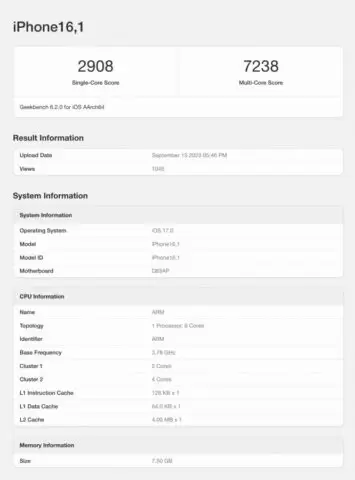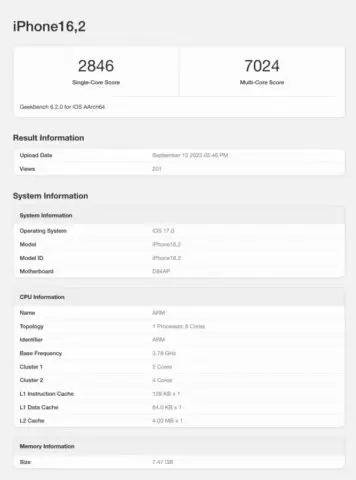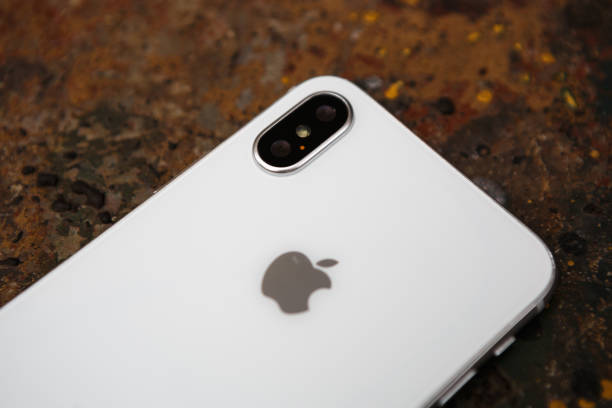Apple’s recent unveiling of the iPhone 15 Series introduced two flagship models: the iPhone 15 Pro and iPhone 15 Pro Max, both powered by the cutting-edge Apple Bionic A17 System on Chip (SoC). Apple’s marketing touted a modest 10% performance enhancement over the A16 predecessor. However, benchmark results leaked from the Geekbench application paint a different picture.
Unveiling the Apple Bionic A17 SoC
In a surprising turn of events, leaked benchmark scores for the Apple Bionic A17 SoC have surfaced, courtesy of the Geekbench application. These benchmarks reveal clock speeds that soar to 3.78 GHz, accompanied by a configuration featuring 6 high-performance cores and 2 power-efficient cores. These specifications position the A17 as a standout among its mobile SoC peers.
Performance Falling Short of Promises


Taking a closer look at the benchmark results, the iPhone 15 Pro (codenamed iPhone 16,1) achieved a single-core score of 2908 points and a multi-core score of 7238 points. In contrast, its sibling, the iPhone 15 Pro Max (iPhone 16,2), recorded slightly lower scores with a single-core tally of 2846 points and a multi-core result of 7024 points, indicating a marginal decrease in performance compared to the standard Pro model.
When juxtaposed with the iPhone 14 Pro, which utilized the Bionic A16 SoC, the performance gap becomes evident. The iPhone 14 Pro managed approximately 2500 points for single-core tasks and 6400 points for multi-core tasks. Averaging these comparisons, the highest-scoring iPhone 15 Pro model showcases a remarkable 16% improvement in single-core performance and a commendable 13% boost in multi-core performance over its predecessor.
These benchmark results undoubtedly bring a sense of satisfaction to iPhone 15 Pro series users, as they not only exceed Apple’s initial performance claims but also signal substantial advancements in mobile computing.

